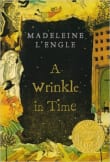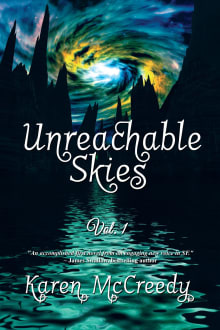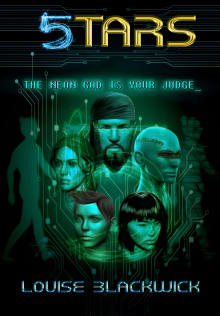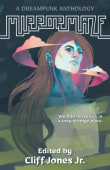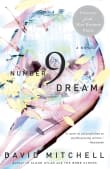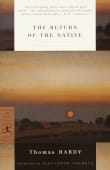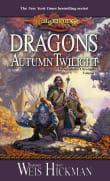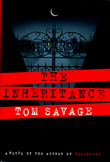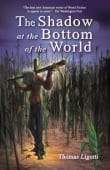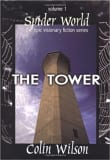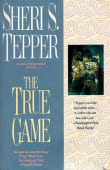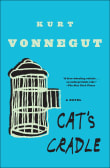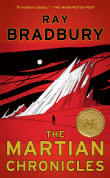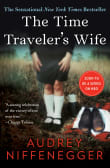The Lathe of Heaven
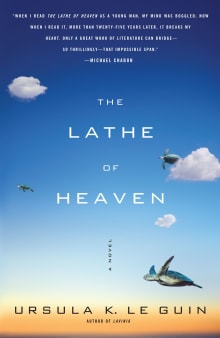
Book description
'Her worlds have a magic sheen . . . She moulds them into dimensions we can only just sense. She is unique. She is legend' THE TIMES
'Le Guin is a writer of phenomenal power' OBSERVER
George Orr is a mild and unremarkable man who finds the world a less…
Why read it?
8 authors picked The Lathe of Heaven as one of their favorite books. Why do they recommend it?

The book tells the story of a man who believes that his dreams influence reality. I loved it because it was strange and intriguing, mind-bending and surreal. Nothing was permanent, and even reality itself was questionable.
Ursula Le Guin explores the issues of climate change and overpopulation, pollution and the destruction of the environment though the characters’ personal experiences. She tackles racism and shows how one's life experiences shape their personality. The question of whether the end justifies the means keeps recurring in the narrative.
From Alina's list on if you miss early Black Mirror.

I love Ursula LeGuin’s fiction, and for me, this is the best book—a brilliant examination of how power can corrupt, even when one’s motives start out good. An unscrupulous psychologist uses his patient’s extraordinary skill to reshape the world with dreadful consequences.
The author takes a fascinating concept and subtly weaves it with deep questions about morality and the nature of good and evil. LeGuin was a masterful writer, and in this book, she created a story that I still reread once a year without fail.
From Gordon's list on making you question how you see the world.

Le Guin is one of my all-time favorite writers, and this book is one of her lesser-known gems. It is a weird, kaleidoscopic story about a man whose dreams change reality and a therapist who tries to take advantage of this to create his own idea of utopia.
It’s a story that doesn’t exactly leave a flattering impression of my profession. But I love it, not only for its mind-bending creativity but as a cautionary tale about what can happen when the imbalance of power in therapeutic relationships goes unchecked. Le Guin takes a question about psychotherapy that I think…
From Alexander's list on understanding misunderstanding mental illness.
If you love The Lathe of Heaven...

This is a book about the power of dreams. What would you do if you realized that whatever you dreamt became reality when you woke up? And what would you do if you had the power to control that dreamer? Like so many of LeGuin’s amazing novels, this one is both pure entertainment and a deeply thoughtful exploration of the consequences of power (as well as some fascinating thoughts about what an ideal world might look like). I find the concept of responsibility as it relates to power super intriguing, and I appreciate how using “magical” elements to explore the…
From Carolyn's list on that mess with time.

This is another novel I’ve read five times. In only 46,000 words, Le Guin doesn’t just build one world, she builds several. After three paragraphs of poetic introduction, Le Guin gives us three sentences that allude to an entire saga that happened just before the novel began, with the world decimated by some unspecified nuclear catastrophe. This pre-saga is never mentioned again, and every time I reread this book, I linger over those three sentences and try to imagine what went down.
Le Guin’s imagination knew no bounds. This book delivers aliens, sentient sea turtles, an ironic cure to racism,…
From Dave's list on short sci-fi no one needs 1100 pgs of worldbuilding.

George Orr's dreams are more than just dreams—they affect reality directly. Any idea prompted in his dreams becomes the new reality for everyone else. He's guided by his ambitious therapist William Haber, who seeks to use George's strange power for his own ends, which as you can imagine, never works out quite the way he wants.
Highly imaginative and deeply terrifying vision of what power can do in the hands of the unscrupulous—and IMHO one of the greatest book titles of all time!
From T.R.'s list on speculative fiction about authority and its abuses.
If you love Ursula K. Le Guin...

My uncle introduced me to The Lathe of Heaven. He explained the concept and I just had to read it. Set in the future, George Orr wakes up to discover his dreams can alter reality and he needs to understand why. Where the story goes from there, I will leave for new readers to discover, but it’s an incredible novel, with a particularly brooding Seattle atmosphere of endless rain. Living in Southern California most of my life, we never got much rain, but when we did, it usually came in autumn. Therefore, my memories of autumn are triggered by…
From Benjamin's list on atmospheric books for autumn.

This is a novel I have read several times. George Orr, the protagonist, has the power to alter the past and his present reality via his dreams, which gives him an unwelcome God-like advantage. The skillfully descriptive narrative explores psychological and philosophical threads of what George does with this power compelling the reader to think about the moral dilemmas and consequences. I think this is one of my favourite novels because it analyses the morality of how George and others use his “gift”. Ursula K. Le Guin is one of my favourite sci-fi authors and this novel was nominated for…
From Matt's list on fiction incorporating dreams.
Want books like The Lathe of Heaven?
Our community of 12,000+ authors has personally recommended 100 books like The Lathe of Heaven.







